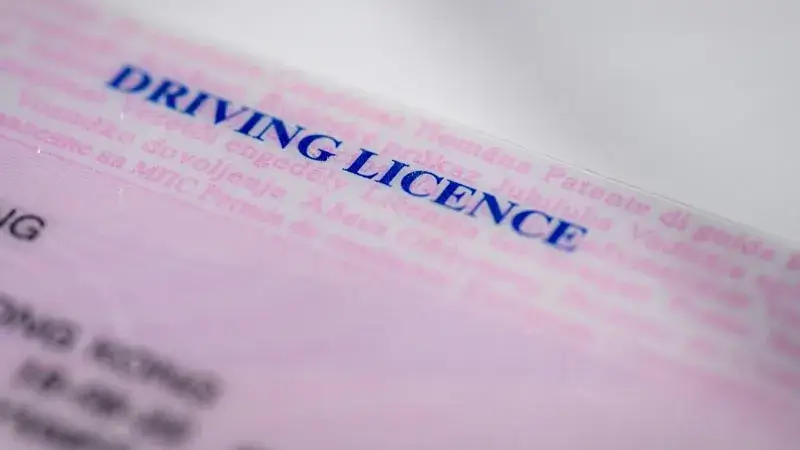Understanding Drivers’ Hours Regulations
In the vast world of transportation, drivers must navigate a complex web of regulations to ensure their compliance and safety. However, the consequences of breaking these rules can be both financially burdensome and legally problematic.
In this article, we explore the specific penalties that drivers may face for non-compliance. From exceeding driving limits to inadequate rest requirements, this informative piece provides a detailed examination of the fines imposed by the authoritative Driver and Vehicle Standards Agency (DVSA).
It also underscores the importance of driver compliance and the alarming statistics on tired driving and its correlation with accidents. Additionally, the article delves into the additional requirements that drivers must meet when operating in the European Union.
With a professional and detail-oriented approach, this article aims to empower drivers with the necessary knowledge to avoid costly fines and maintain a safe driving record.
Key Takeaways
– Drivers who break driving limits and rest requirements can face fines and penalties.
– The Driver and Vehicle Standards Agency (DVSA) can fine drivers up to £300 for breaking the rules and can also prosecute or immobilize their vehicle.
– DVSA traffic examiners can issue fines for up to 5 drivers’ hours offenses in a single roadside check, with a potential fine of up to £1,500 for consistent rule-breaking.
– Driving while tired can be responsible for a significant number of accidents and crashes, highlighting the importance of adhering to rest requirements.
Driving Limits and Recording
When it comes to adhering to driving limits and recording, drivers must abide by strict regulations to avoid costly fines.
The daily driving limit is set at 9 hours per day, with the option to extend it to 10 hours twice within a week.
The weekly driving limit is 56 hours, and it can be extended to 90 hours within any two weeks.
To ensure compliance, drivers are required to record all driving activities, including other work, on a tachograph.
Rest requirements are also crucial, with a mandatory weekly rest of 45 hours, which can be reduced to 24 hours with compensation.
Daily rest should be at least 11 hours, but it can be reduced to a minimum of 9 hours three times per week.
Drivers should also take breaks, with a mandatory 45-minute break after a maximum of 4.5 hours of driving.
Non-compliance with these regulations can lead to fines, vehicle immobilization, or prosecution by the Driver and Vehicle Standards Agency (DVSA).
It is important for drivers to understand and adhere to these rules to ensure their safety and avoid penalties.
Rest Requirements
Rest requirements for drivers are crucial to ensure their safety and compliance with regulations. In order to prevent fatigue-related accidents, drivers must adhere to specific rest periods.
A weekly rest of 45 hours is required, although this can be reduced to 24 hours with compensation. Additionally, a daily rest of 11 hours is mandatory, with the option to reduce it to a minimum of 9 hours three times per week. It is worth noting that the daily rest can be split into two periods, with a minimum of 3 hours and a minimum of 9 hours.
Furthermore, drivers are required to take a 45-minute break after a maximum of 4.5 hours of driving, which can be replaced by two breaks of at least 15 minutes and 30 minutes respectively.
Adhering to these rest requirements is essential for the well-being of drivers and the safety of all road users.
Breaks
To ensure compliance with regulations and promote driver safety, it is important for drivers to understand the requirements for breaks. Here are four key points to consider:
1. Break frequency: Drivers should take a 45-minute break after a maximum of 4.5 hours of driving. Alternatively, they can opt for two breaks – a minimum 15-minute break followed by a minimum 30-minute break.
2. Rest and driving limits: Drivers must adhere to daily rest requirements of 11 hours, which can be reduced three times a week to a minimum of 9 hours. Additionally, weekly rest should be 45 hours, which can be reduced to 24 hours with compensation.
3. Recording breaks: It is crucial for drivers to accurately record all breaks and driving time on a tachograph, as this helps ensure compliance and provides evidence of adherence to regulations.
4. Safety and fines: Taking breaks is not only a legal requirement but also a crucial safety measure. Driving while tired contributes to a significant number of accidents. Non-compliance with break regulations can result in fines of up to £300, vehicle immobilization, or even prosecution.
Understanding and adhering to break requirements is essential for drivers to prioritize their safety, avoid costly fines, and promote a liberated and responsible driving culture.
Fines for Non-compliance
Lorry, bus, and coach drivers who violate the regulations will face fines for each infraction within the last 28 days. The Driver and Vehicle Standards Agency (DVSA) has the authority to impose fines of up to £300 for breaking the rules. In addition to fines, the DVSA can also take further action by prosecuting the driver or immobilizing their vehicle.
During roadside checks, DVSA traffic examiners have the power to issue fines for up to 5 drivers’ hours offenses in a single inspection, with a potential fine of up to £1,500 for consistent rule-breaking. Furthermore, drivers who fail to take a 45-hour rest break every 2 weeks can also be fined up to £300 if they spend the full weekly rest break in the vehicle.
It is important to note that tired driving is a significant cause of accidents, with fatigue being responsible for 1 in 5 accidents and up to a quarter of serious and fatal crashes, according to the Royal Society for the Prevention of Accidents (RoSPA). Compliance with EU Drivers Hours Requirements is still necessary for UK drivers unless exempted, with some additional rules and differences for driving in the EU.
DVSA Authority and Penalties
The Driver and Vehicle Standards Agency (DVSA) has the authority to enforce penalties for drivers who violate the regulations, ensuring compliance with driving limits, recording requirements, and rest obligations. This authority is crucial in maintaining road safety and preventing fatigue-related accidents.
The DVSA has the power to issue fines, prosecute, and even immobilize vehicles in cases of consistent rule-breaking. With fines of up to £300 for breaking the driving limits and recording requirements, drivers are compelled to adhere to the regulations. Additionally, fines of up to £300 can be imposed if the full weekly rest break is not taken in a vehicle.
The DVSA’s strict enforcement of penalties serves as a deterrent, ensuring that drivers prioritize their rest and comply with the required driving limits, ultimately contributing to safer roads and liberated drivers.
Impact of Driving While Tired
Driving while fatigued can have significant consequences on road safety and driver well-being. According to the Royal Society for the Prevention of Accidents (RoSPA), driving while tired may be responsible for 1 in 5 accidents and up to a quarter of serious and fatal crashes. Fatigue can impair a driver’s ability to react quickly and make sound decisions, increasing the risk of accidents. It can also lead to decreased concentration, poor judgment, and slower reaction times. To emphasize the importance of avoiding fatigue while driving, take a look at the details below which outlines the driving limits, rest requirements, and breaks that drivers must adhere to:
Driving Limits and Record-keeping
- The daily driving limit is 9 hours per day, with the possibility of increasing to 10 hours twice in any week.
- The weekly driving limit is 56 hours and 90 hours in any two weeks.
- Drivers must record all driving on a tachograph.
- Tachograph records include other work done by drivers.
- Tachograph records are mandatory.
Rest Periods
- The weekly rest is 45 hours, which can be reduced to 24 hours with compensation.
- Rest periods cannot be taken in the driver’s cab.
- The daily rest is 11 hours, with the possibility of reducing to 9 hours three times a week without compensation.
- The daily rest can be split into two periods: a minimum of 3 hours and a minimum of 9 hours.
- The total minimum rest period is 12 hours.
Breaks
- A 45-minute break after 4.5 hours of driving can be replaced by two breaks: a minimum 15-minute break followed by a minimum 30-minute break.
- Breaks are necessary to ensure driver safety and prevent fatigue.
- Breaks help maintain concentration and reduce the risk of accidents.
- Breaks must be taken according to regulations to avoid fines and penalties.
- Breaks are essential for driver well-being and overall road safety.
Fines for Breaching Rest Break Rules
- Lorry, bus, and coach drivers can be fined for every breach of rest break rules in the previous 28 days.
- The Driver and Vehicle Standards Agency (DVSA) can fine drivers up to £300 for breaking the rules.
- DVSA traffic examiners can issue fines for up to 5 drivers’ hours offenses in a single roadside check.
- Fines for not taking adequate rest breaks have been in place since November 1, 2017.
- Tired driving is responsible for a significant number of accidents, including serious and fatal crashes.
Extra Requirements for Driving in the EU
- UK drivers still need to adhere to EU Drivers Hours Requirements, even after Brexit.
- Some exemptions to EU drivers hours regulations exist for specific vehicles.
- There are additional rules and differences to follow when driving from or through an EU country.
- Consecutive weekly rest periods less than 45 hours are allowed outside the driver’s home country.
- Full records of all other work must be kept when driving in the EU.
It is essential for drivers to prioritize their well-being and ensure they are well-rested before getting behind the wheel to prevent accidents caused by fatigue.
Extra Requirements for Driving in the EU
When driving in the EU, UK drivers still need to adhere to EU Drivers Hours Requirements, unless exempted. Here are some extra requirements for driving in the EU:
1. Two consecutive weekly rest periods less than 45 hours are allowed when driving goods vehicles abroad. This can be a burden for drivers who need adequate rest to ensure road safety.
2. Full 45-hour rest is required for two weeks out of every four weeks working abroad. This means drivers may have limited flexibility in managing their rest periods.
3. A full record of all other work must be kept when driving in the EU. This additional administrative burden can be time-consuming and distracting for drivers who would rather focus on the road.
4. Non-compliance with these extra requirements can result in fines and penalties, adding to the stress and financial burden for drivers.
While these requirements are in place to ensure safety on the roads, they can also limit the freedom and flexibility of UK drivers when operating in the EU.
Importance of Complying With Regulations
Compliance with these regulations is crucial for drivers, as it ensures safety on the roads and helps to avoid costly fines and penalties. The driving limits and rest requirements specified by the authorities are designed to prevent fatigue-related accidents and ensure that drivers are well-rested and capable of operating vehicles safely.
By adhering to these regulations, drivers can minimize the risk of accidents caused by tiredness and maintain a high level of alertness while on the road. Moreover, complying with these regulations also helps drivers avoid the financial burden of fines and penalties imposed for non-compliance.
The Driver and Vehicle Standards Agency (DVSA) has the authority to issue fines, prosecute offenders, and even immobilize vehicles. Therefore, drivers must prioritize compliance with these regulations to protect their safety, the safety of others, and their own financial well-being.
Frequently Asked Questions
What Are the Consequences for Drivers Who Do Not Comply With Driving Limits and Recording Requirements?
Drivers who fail to comply with driving limits and recording requirements face serious consequences. They can be fined up to £300 per breach, and the Driver and Vehicle Standards Agency (DVSA) has the authority to prosecute or immobilize their vehicle.
DVSA traffic examiners can issue fines for up to 5 drivers’ hours offenses in a single roadside check, with potential fines of up to £1,500 for consistent rule-breaking.
Failure to take the required rest breaks can also result in fines, with a maximum penalty of £300. These measures are in place to ensure road safety and prevent accidents caused by tired driving.
How Often Can the Daily Rest Period Be Reduced to a Minimum of 9 Hours?
The daily rest period can be reduced to a minimum of 9 hours up to three times in a week. This flexibility allows drivers to adjust their rest periods to accommodate their schedules while still ensuring they meet the required rest requirements.
It is important for drivers to closely monitor their rest periods and ensure they are taking the necessary breaks to prevent fatigue and maintain safety on the road.
Failure to comply with rest requirements can result in fines and penalties imposed by the relevant authorities.
Can the 45-Minute Break After 4.5 Hours of Driving Be Split Into Two Smaller Breaks?
Yes, the 45-minute break after 4.5 hours of driving can be split into two smaller breaks. According to the regulations, the break can be replaced by a minimum 15-minute break followed by a minimum 30-minute break.
This allows drivers to have more flexibility in managing their rest periods while still ensuring they take the necessary breaks during their driving shifts.
It is important for drivers to adhere to these rules to ensure road safety and avoid costly fines for non-compliance.
What Are the Potential Fines for Drivers Who Consistently Break the Rules?
The potential fines for drivers who consistently break the rules can be quite costly. Lorry, bus, and coach drivers can be fined by the Driver and Vehicle Standards Agency (DVSA) for every breach in the previous 28 days. The DVSA has the authority to fine drivers up to £300 for breaking the rules, and they can also prosecute or immobilize their vehicle.
In a single roadside check, DVSA traffic examiners can issue fines for up to 5 drivers’ hours offenses, with a potential fine of up to £1,500 for consistent rule-breaking. Additionally, drivers who fail to take a 45-hour rest break every 2 weeks may also be fined up to £300 if they spend the full weekly rest break in the vehicle.
How Many Accidents Are Estimated to Be Caused by Driving While Tired, According to the Royal Society for the Prevention of Accidents (Rospa)?
According to the Royal Society for the Prevention of Accidents (RoSPA), driving while tired is estimated to be responsible for 1 in 5 accidents and up to a quarter of serious and fatal crashes.
This alarming statistic highlights the importance of adhering to rest requirements and driving limits to ensure road safety.
Final Thoughts
Drivers must be aware of and adhere to driving regulations to avoid costly fines and legal repercussions. The Driver and Vehicle Standards Agency (DVSA) imposes significant financial penalties for non-compliance, including vehicle immobilization.
Tired driving is a major concern, with alarming statistics highlighting its correlation with accidents.
Additionally, drivers operating in the European Union must meet extra requirements.
Therefore, it is crucial for drivers to prioritize compliance with regulations to ensure safety on the roads and avoid the detrimental consequences of breaking the rules.
Share This Article, Choose Your Platform!
continue reading
Related Posts
Discover how Driver CPC Training can unlock your potential as a commercial driver. Don't miss out on the key to driving success!
In today’s ever-evolving landscape of driver licence checks, staying up-to-date with crucial updates and understanding associated risks is paramount.





